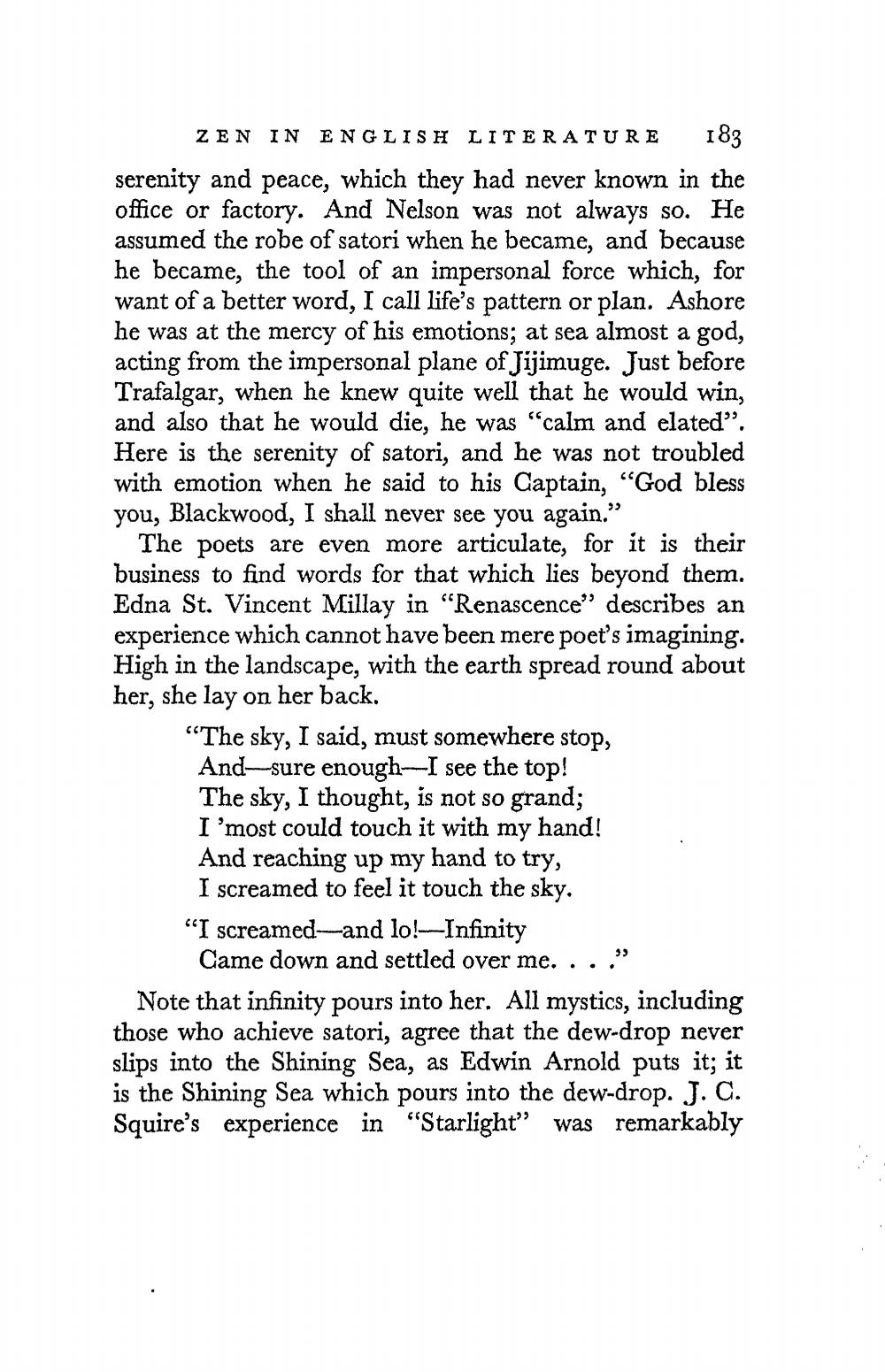________________
ZEN IN ENGLISH LITERATURE 183 serenity and peace, which they had never known in the office or factory. And Nelson was not always so. He assumed the robe of satori when he became, and because he became, the tool of an impersonal force which, for want of a better word, I call life's pattern or plan. Ashore he was at the mercy of his emotions; at sea almost a god, acting from the impersonal plane of Jijimuge. Just before Trafalgar, when he knew quite well that he would win, and also that he would die, he was "calm and elated". Here is the serenity of satori, and he was not troubled with emotion when he said to his Captain, "God bless you, Blackwood, I shall never see you again."
The poets are even more articulate, for it is their business to find words for that which lies beyond them. Edna St. Vincent Millay in "Renascence" describes an experience which cannot have been mere poet's imagining. High in the landscape, with the earth spread round about her, she lay on her back.
“The sky, I said, must somewhere stop, And-sure enough-I see the top! The sky, I thought, is not so grand; I'most could touch it with my hand! And reaching up my hand to try, I screamed to feel it touch the sky, “I screamed-and lo-Infinity
Came down and settled over me. ..." Note that infinity pours into her. All mystics, including those who achieve satori, agree that the dew-drop never slips into the Shining Sea, as Edwin Arnold puts it; it is the Shining Sea which pours into the dew-drop. J. C. Squire's experience in "Starlight” was remarkably




